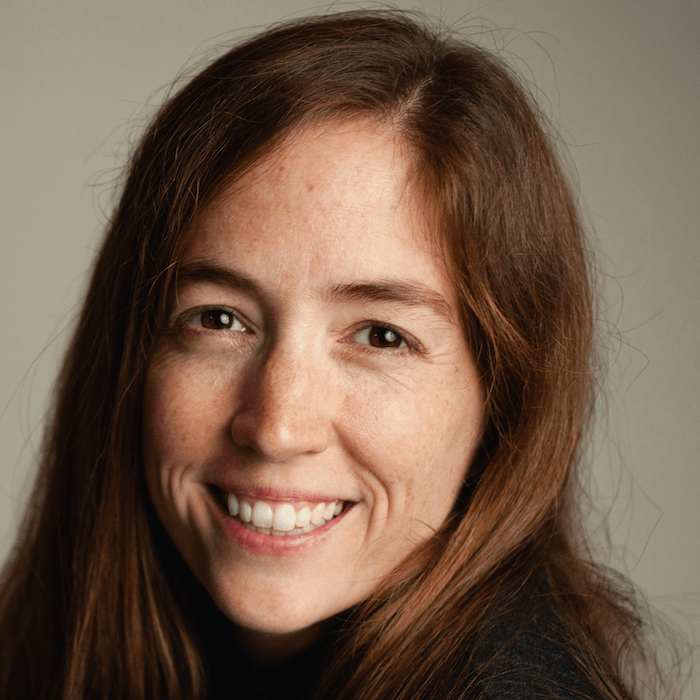Why are some women skeptical when given their personalized risk for developing breast cancer? The inquiring mind of Laura Scherer, PhD, wants to know.
Scherer, a University of Colorado Cancer Center member and associate professor of cardiology at the CU School of Medicine, recently received an R01 grant from the National Cancer Institute (NCI) aimed at understanding why some women, when told their risk of developing breast cancer, question the assessment, believing it either overestimates or underestimates their personal risk for the disease.
The project has its origins in a paper Scherer worked on several years ago that analyzed data about women who received personalized risk assessments.
“As part of that survey, we gave women their personal risk estimate and later asked if they remembered their risk number,” Scherer says. “Many of them wrote down a number that was different than the one they were given. We followed up and asked them, ‘Did you just not remember your number, or did you feel like that wasn’t your number?’ And about 20% of the sample said, ‘I wrote down a different number because I felt like the one I was given was not my number.’”
The reasons for the discrepancy varied, Scherer says—some women said they always had a feeling they would get cancer; others said they had always known they wouldn’t get the disease. Some pointed to their lifestyle or other health factors, such as smoking, being overweight, or having undergone hormone replacement therapy, as risk factors they believed the calculator should have taken into account.
“The way the risk calculator works is it asks a bunch of personal and health history questions—how many first-degree relatives have cancer? How old were you when you started having your period? How many children have you had? Did you breastfeed those children? All those things are related to your breast cancer risk,” Scherer says. “We had some people who gave us answers that were kind of off the wall; we couldn’t understand why they thought their risk would be different. Then we had other people who gave us very reasonable-sounding answers. I’ve always wanted to follow up on that.”
When skepticism delays screening
For her new NCI-funded study, Scherer is looking at personal risk assessments—and the skepticism that can surround them—in the context of precision medicine. In this new era, she says, “screening initiation and maintenance can be based, in part, on personal risk estimates, with the goal of maximizing screening benefits and minimizing the harms. Cancer risk prediction models can help women decide with their doctor about when they should start screening and how often they should screen.”
It's important that women make informed choices about breast cancer screening, Scherer says, but skepticism about their personal risk assessment means some women may avoid a screening even when it would be recommended.
“Hopefully we’ll be able to provide some information about the risk calculator itself and how it might be used,” Scherer says. “We want to look at presenting the information differently, perhaps giving it a different context and providing information that will help people understand and accept the information they’re being provided with. We also want to know if there are reasonable objections to the risk calculations people are receiving.”
Surveys and follow-ups
Scherer’s research will begin with a longitudinal survey to understand the scientific nature of risk rejection. Women will be asked to fill out the online risk assessment to receive their personalized risk estimate. They will then be asked if they agree with that estimate. For those who disagree, Scherer and her research teams will interview them further to understand why.
“One of our hypotheses is that for some people, the risk number they receive is information that’s threatening, so they’re going to engage in something we call motivated reasoning to negate or downplay the implications of that information,” Scherer says. “Another hypothesis is that maybe this information is different from information they have received in the past, or different from an expectation they’ve formed. When new information is very different from what you expected or previously believed, it makes sense to question it.”
A third hypothesis has to do with racial disparities and the fact that some populations are underrepresented in medical research.
“For example, the Black population often isn’t adequately represented in research studies,” Scherer says. “From that perspective, you might not feel that this information applies to you because the tool was created with people who are unlike you. We think that Black women, in particular, might be more likely to express risk skepticism because of a reasonable belief that the data were created without the input of women like them. We’re going to make sure that our sample has a large proportion of women of color, particularly Black women, so that we can gather those perspectives and test those hypotheses.”
Once the survey stage is complete, Scherer plans to identify the impact of risk skepticism on screening behavior—does disagreeing with their number make people less likely to get a mammogram—and develop communication strategies to reduce risk skepticism.
“We want to use this survey to identify why women are expressing skepticism toward this risk estimate and then, depending on that answer, we want to develop some ways of communicating about that risk that might alleviate that skepticism when appropriate,” she says. “I’m hoping we can provide some insight to providers about how to talk about their patients’ personal breast cancer risk that might alleviate some of this skepticism.”




